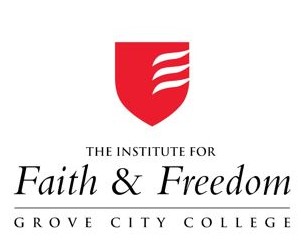Hollywood Hypocrisy on Guns
In the same week that A-list celebrities appeared in a painfully earnest video to “demand a plan” from President Obama to end gun violence, leaders of the industry that employs these stars told the White House and the world that they opposed any organized effort to curb glamorization of brutality in popular culture. The timing of the contradictory messages exposed the hideous heights of Hollywood hypocrisy in especially embarrassing terms.
Jamie Foxx and his fellow gun control activists solemnly declared to the camera “No more lists!…we can do better than this! It’s time for our leaders to act,” while that very performer starred in the #2 box office hit in the country, the sadistically violent Django Unchained. (Fortunately, the #1 Hollywood commercial attraction featured tender, uplifting, family friendly messages under the heart-warming title, Texas Chainsaw 3-D.)
Jennifer Anniston, Will Ferrell, Cameron Diaz, Amy Poehler, Chris Rock and other stars pleaded “for the children of Sandy Hook, we demand a plan!” just as former Senator Chris Dodd, head of the Motion Picture Association, met with Joe Biden and made clear that “what we don’t want to get involved with is content regulation. We’re vehemently opposed to that.”
The same day of the Vice President’s well-publicized White House meeting with Hollywood big-wigs to discuss firearms and needless killing, the Motion Picture Academy announced its Oscar nominations, with a majority of best picture choices (Zero Dark Thirty, Django Unchained, Argo, Les Misérables and even the noble Lincoln) featuring scenes of graphic, expertly rendered gun violence. The next weekend’s biggest studio release, Gangster Squad, stars double-Oscar winner Sean Penn and deploys literally scores of semi and fully automatic assault weapons, firing thousands of rounds in a seemingly endless series of artfully choreographed blood baths.
As to the potential social impact of such excesses, the Entertainment Merchants Association, “dedicated to advancing the interest of the $34 billion dollar home entertainment industry,” sent an open letter to Vice President Biden warning him against even investigating the linkage between movies, video games and real-life violence.
No reasonable observer could claim that this connection counted as inevitable and direct—any more than a balanced view argues for a simplistic association between levels of gun ownership and rates of real-world brutality. With more firearms in private hands and with entertainment media relying as heavily as ever on violent imagery, the national murder rate has gone down, not up—cut by more than half in the past thirty years. After all, if digesting a steady diet of disturbing, bloody movies unfailingly nourished homicidal tendencies, then those of us who have worked for many years as film critics would boast the highest murder rate in the country.
On the other hand, the notion that gory amusements in film, television and video games wield no influence at all on millions of eager consumers also counts as scientifically unsupportable and logically absurd. The fact that violent entertainment doesn’t influence everybody doesn’t mean that it fails to influence anybody. Background explorations of the habits of prolific mass murderers—including the insane shooters at Columbine, Aurora and, apparently, Newtown—reveals a strong taste for brutal diversion with a particular emphasis on first-person-shooter video games.
To understand the limited but significant nature of media influence, consider the example of television advertising. Luxury car companies like Lexus, Infiniti and Audi spend hundreds of millions of dollars on lavish, artful commercials despite the fact that 99.99 percent of those who see such ads could never even consider the purchase of such expensive cars. Nonetheless, enough people across the country will feel swayed by the imagery on TV messages that they end up buying spiffy new rides. It’s that influence at the margins that can change a company’s bottom line, justifying very smart corporate honchos in their massive investment in media advertising.
Moreover, even those viewers who never purchase the shiny new wheels hawked in the sixty second TV fantasies will still be influenced by the commercial messages, internalizing the idea that the Lexus, Infiniti or Audi brands count as prestigious, luxurious, chic, desirable and sexy. In the same way, violent episodes in entertainment will only very rarely lead to direct imitation in everyday life, but those themes do serve to redefine brutal behavior as chic, desirable, sexy, or even normal, conveying the idea that such conduct occurs far more frequently than it actually does.
After all, the Hollywood glitterati who assembled the “We Demand a Plan” video supposed that their aesthetically accomplished advocacy could prod their viewers into real world action: getting them to contact the White House to push for gun regulation. But how could they reasonably expect that a few minutes of imagery on the internet could induce positive behavior but, that thousands of hours of blood-soaked entertainment will never encourage destructive behavior?
Rather than waiting for action from the White House, the well-meaning stars ought to demand commitment from themselves: imagine the impact if the big names in the little ad publicly promised that they would never again participate in movies or television that glorified violent behavior? This might severely limit their selection of future projects, but stars of this luminescent magnitude would still find suitable vehicles that avoid filling the screen with bullet-ridden corpses.
Instead of begging for faraway bureaucracies to impose new regulations on other people’s handling of firearms, the influential Hollywood activists could impose new regulations on themselves – refusing to handle guns of any kind in their own screen roles. Taking such a stand wouldn’t put an immediate end to incidents of mass killing, but it could draw public praise for courage and consistency while sending the welcome message that killing isn’t a healthy form of entertainment. Yes, we can do better than this.
A shorter version of this column appeared first in USA TODAY.




















